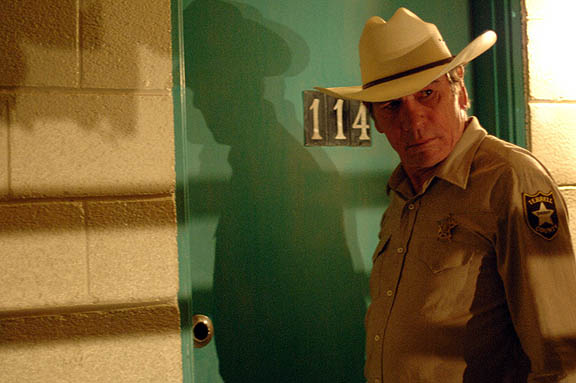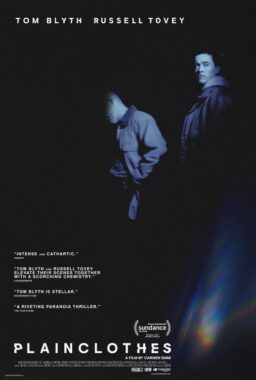Q: I went to see “No Country for Old Men” with a group of my friends. I was absolutely fascinated and riveted by the film and think it is the best film I have seen thus far this year. My very good friend, who also happens to be a very smart guy, thought the film was terrible. I was shocked. Should I debate the merits of the film with him? Is it even worth debating such a wonderful film when the person you are debating with has no appreciation for it, and does it pose a risk to the friendship?
John Dolores, Chattahoochee, Fla.
A. As Louis Armstrong instructs us, “There are some folks that, if they don’t know, you can’t tell ’em.”
Q. As the producer of “Siskel & Ebert” for many years, I am glad to see all the old shows online. But as a writer deeply involved in the current writers strike, I am wondering — are you being paid for that work? You guys wrote every word yourselves. I should know.
Nancy de los Santos, Los Angeles
A. Nope. But I’m happy to see that stuff out there.
Q. I read your “Top 10 of 2006” and something caught my eye. You placed “The Departed” (4) ahead of “Babel” (9). I distinctly remember your Oscar predictions/wishes from earlier this year, and you said you thought “Babel” deserved to win best picture. Did you change your mind, or do you sometimes feel that even a better film sometimes doesn’t deserve to win “Best Picture”? I ask this because I had a similar feeling in 2005. Even though I thought “Crash” was a better movie, I believed that “Brokeback Mountain” deserved the award. That film was much more daring in its presentation and execution.
Mike Smith, University of Pittsburgh, Pa.
A. Emerson instructs us that “foolish consistency is the hobgoblin of little minds.” More to the point, isn’t it silly to rank great films in 1-2-3 order? I do it only because it is traditional. Jonathan Rosenbaum is much more sensible when he ranks the best films of the 20th century chronologically. One year I tried listing my “best films” alphabetically, but there was an uproar from readers accusing me of wimping out. I value “The Departed” and “Babel” equally, and that goes for “Man Push Cart,” the No. 10 title on my list. I do feel, however, that “Pan's Labyrinth” was the best film of 2006.
Q. Ang Lee has dropped some hints that the sex scenes in “Lust, Caution” were not simulated. I’m of the belief that watching actual sex is inherently wrong (but, like, no offense, man; I don’t think you’re evil or something because you’ve watched ’em). How exactly does one find out if the sex scenes in a given film were staged or not?
Christopher Cadworth, Ashton, Ontario
A. As in life, it is hard to tell. Sometimes you have eyewitnesses; both Barbara Hershey and David Carradine have said their sex scenes in Scorsese’s “Boxcar Bertha” were the real thing.
Q. In your recent review of “Hitman,” you boldly stated (again) the impossibility of videogames achieving the status of “art.” I’m sure you again got flooded with e-mails arguing for one side or the other. What I’m wondering is, why bother? There is no universal definition of what art is or isn’t. You can’t possibly be surprised that a blanket statement that says “x isn’t art” will elicit a contrary response. There is no right answer (especially in a world where a can of soup can be “art” if displayed as part of an exhibit). I do have a feeling you enjoy winding people up over this though.
Daniel Kozimor, Mississauga, Ontario
A. Well, maybe I do. But it also involves deep love of movies and a regret that millions and millions of life-hours could be invested more fruitfully.
Q. You’re gonna love this: Sciencedaily.com has an article stating, “Worker bees, wasps, and ants are often considered neuter. But in many species they are females with ovaries, who although unable to mate, can lay unfertilized eggs which turn into males if reared. For some species, such as bumble bees, this is the source of many of the males in the species. But in others, like the honeybee, workers “police” each other — killing eggs laid by workers or confronting egg-laying workers.” You have opened a Pandora’s box. Although what just occurred to me is that this article, or even just that paragraph, could have been the genesis for a very interesting movie about bees.
Raymond Ogilvie, Philadelphia
A. What I have learned from this whole “Bee Movie” discussion is that bees have very confused and sad sex lives, and are much in need of intelligent design.
Q. After watching “Children of Heaven,” I read your review, which supported my opinion of how the film so perfectly captured the innocent nature of the brother and sister. Why does it seem that foreign cinema seems to know more about children than most, if not all, of the films made by American filmmakers? I point out Bruno in “The Bicycle Thief,” the main character of “Pan’s Labyrinth,” the sister in “Grave of Fireflies,” and the boys in Del Toro’s other masterpiece, “The Devil's Backbone.” These characters seem to be so realistic in capturing the mentality of youth. Why? I would make the argument that it is our culture of videogames and violence — but I was brought up in that culture and I identified with these characters so well. I was just like them. So why does American cinema habitually use child characters, as you so flawlessly put it, “as little stand-up comedians”?
Jonathan D’Ambrosio, Fairfield, Conn.
A. Not all American films do. See “Rails & Ties” (2007), “Bee Season,” “Akeelah and the Bee,” even “The Kite Runner,” which is after all, an American film. But most do. It may be because we have so much difficulty in making films about children that are not aimed at children. And most teens are represented as demographic group profiles, which makes a film like “Juno” so special. For precisely seen child characters, see “Forbidden Games” in my Great Movies collection. Or consider the forthcoming British film “Atonement.”
Q. I recently saw “Lars and the Real Girl” and I liked it a lot. However I was disappointed with how the audience responded to some of the later scenes; they laughed out loud during what I thought were very touching moments. Is this just a matter of people not getting the point of the movie? Or was all that stuff near the end funny?
Craig E. Maddox, Auburn, Calif.
A. Some of it was funny in a deep human-nature sort of way, not laugh-out-loud. I think the problem people have with that wonderful film is that they just can’t accept a movie involving a love doll. It embarrasses them, even though there is not the slightest suggestion of sex involved, and Lars is essentially healing himself with the aid of an imaginary friend. One of the critics at MovieCityNews.com actually suggests Bianca for best supporting actress, which is not so far-fetched if you contemplate how much we project upon any movie character.












